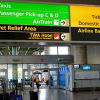Flight Price Could Rise by 40pc, Warns Kenya Association of Air Operators

The Kenya Association of Air Operators (KAAO) has voiced strong opposition to the 2024 Finance Bill, citing its potential to disrupt the nation's air travel sector.
The Bill proposes the implementation of Value-Added Tax (VAT) on various airline operations, encompassing leasing of equipment, maintenance services, and other essential functions. KAAO's CEO Liz Aluvanze emphasizes the misalignment of this proposal with international practices, highlighting that most countries opt to exempt such services from VAT. While the tax wouldn't directly apply to airline tickets, KAAO warns that airlines will likely transfer these increased operational costs to consumers, resulting in a significant rise in airfare prices.
The projected impact on domestic flights operated by Kenyan airlines is particularly concerning, with potential price hikes ranging from 30% to 40%. This surge stems from the Bill's focus on taxing aircraft with a take-off weight between 2,000 and 15,000 kilograms, a category encompassing most Kenyan-registered commercial aircraft. Beyond the immediate price hikes for consumers, the proposed tax structure raises broader concerns about Kenya's competitiveness within the East African aviation market. Airlines in neighbouring countries often benefit from tax incentives, making them more attractive to operators. This could lead to a shift in regional air traffic, potentially undermining Kenya's position as a leading aviation hub.
Furthermore, Kenya boasts a prominent position as a regional hub for aircraft maintenance, with approximately 88 registered companies specializing in this field. The proposed taxes on maintenance equipment could jeopardize this established strength, hindering Kenya's ability to maintain its leadership role in this sector. The potential economic ramifications extend beyond the aviation industry itself. The air transport sector, along with related tourism revenue, contributes substantially to Kenya's economy generating an estimated Sh 400 billion (approximately USD 3.2 billion). Disruptions caused by increased airfare prices could negatively impact this vital source of income.
It's worth noting that the Kenya Association of Manufacturers (KAM) has echoed similar concerns regarding the broader implications of the Finance Bill. KAM fears that proposed tax increases could drive manufacturers out of the Kenyan market, potentially leading them to relocate to neighbouring countries with more favourable tax policies.














Comments
Moi ruled Kenya politically…
Permalink
Moi ruled Kenya politically instead of administratively, Ruto is doing the same exact thing. Is there a cultural connection or it is just lack of connection with the common Kenyan's well-being?
Add new comment